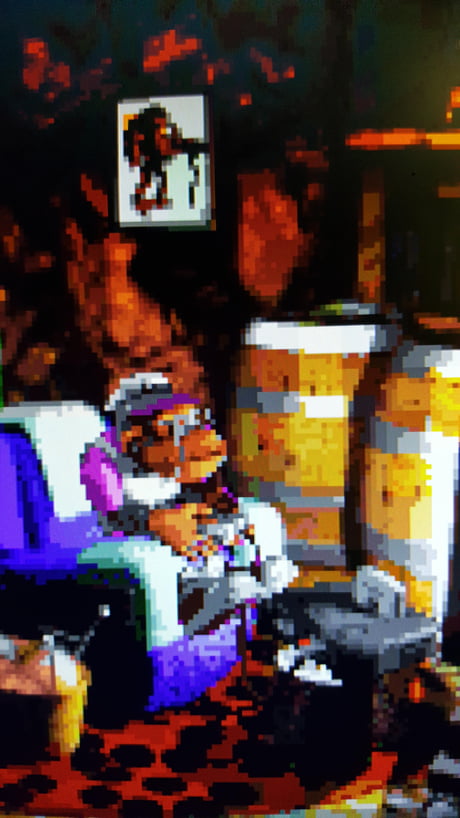Some interesting posts in this topic.
I'm camp accuracy and have the hardware and controllers to prove it, but since most of those arguments have been made already, I'm going to play devils advocate.
A few points have already been made about how composite versus RGB can change the way dithering looks for various consoles. What's more though, even certain chip revisions in consoles themselves can cause differences in certain games. Someone mentioned the 1CHIP SNES earlier, which is a video chip that combined the S-CPU, S-PPU1 and S-PPU2 chips - hence 1CHIP - and is known for having superior, particularly sharper, video output. What is talked about less is how that chip actually causes artifacts in some games. Some things like the over-brightness and ghosting can be fixed with a resistor installed, but the chip actually presents some graphical artifacts on the edges of
some games. It doesn't make the chip worth avoiding, but I'm mentioning this to emphasize that you can't even get identical experiences on the same consoles, depending on hardware revisions.
On retro PC games, this difference is much, much starker. Gone is the consistency of similar audio and video chips we find in console revisions. If we go back to 80's PC games, there were many competing platforms with different architectures. So much so that software often had to be rewritten for each computer platform. The differences are even wider when you consider that Europe, Japan, and North America at the very least all had different platforms. Any game of that era is going to play differently depending on which platform you choose. Even if you play the first version of a game, it's possible the developers took advantage of better hardware in later ports in order to better realize their vision. Even among IBM PCs, there was first CGA and later EGA and finally VGA, and many games were designed with multiple graphic modes in mind depending on what computer they were ran on. As PCs started to get into the 90's, the DOS dominance gave way to less competing platforms, but what took its place were competing video cards and audio cards and processors, which could vastly affect the speed, graphics, and sound of a PC (sound in particular was a much bigger difference than we're accustomed to today). Older games on newer computers can play too fast and newer games on older computers can play too slow, never mind the many incompatibility differences that crop up with various drivers.
This is all to say, I do appreciate accuracy, but "accurate" can sometimes be pretty difficult to define. That all said, that's also a lot of the fun for me! I love collecting various hardware and getting to see the differences. I love comparing ports and seeing how developers took advantage of various hardware. I half love retro gaming as much as I do for the history of it as I do for the gaming itself. So that's a big reason I love original hardware. Old PCs in particular, emulation really falls short of delivering the real experience (even if the "real experience", as I just elaborated on, is hard to pin down and often pretty frustrating).
To speak to the game collecting side briefly before I sign off on this post, if controllers and hardware collecting are mountains, game collecting is an ocean. I spent over a decade seriously collecting games and had over 750 complete games and tens of thousand of dollars invested in my collection. It's a very hard thing to do responsibly and not at the deficit of other important things. (Even if it turned out to be a pretty good investment.) For that reason, I don't include software in my quest for accuracy if I can adequately replace it with flash or ODE devices. I have a lot of love for the software, and I will still buy games for new systems, but I really don't think the immense cost in both time and money for all those 0's and 1's of video game cartridges and discs are worth the admittedly pleasurable experience of putting them into the console.
